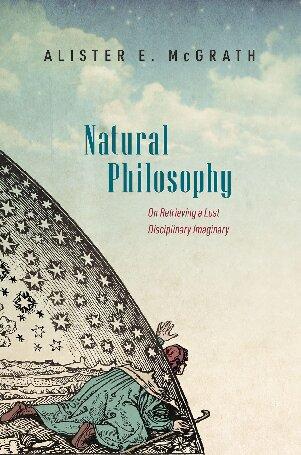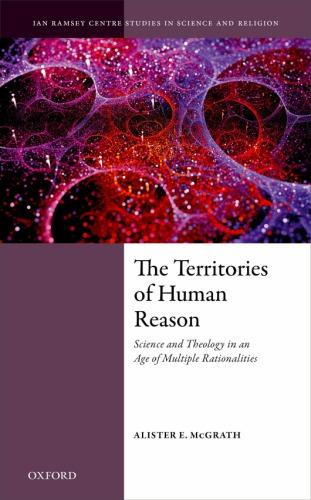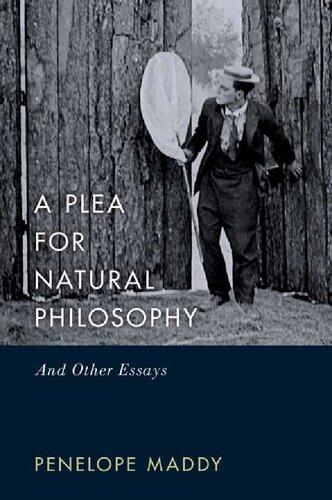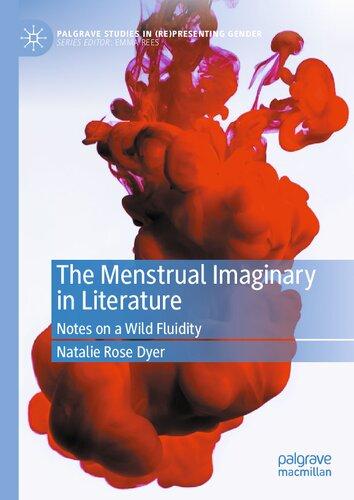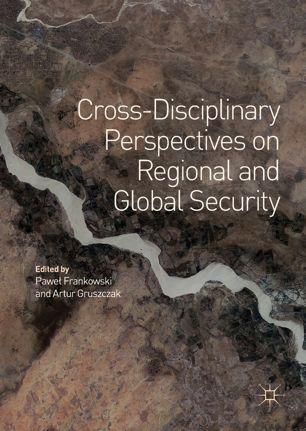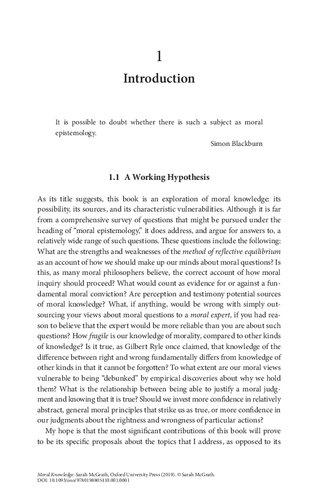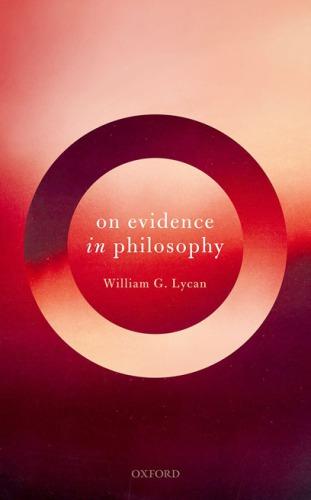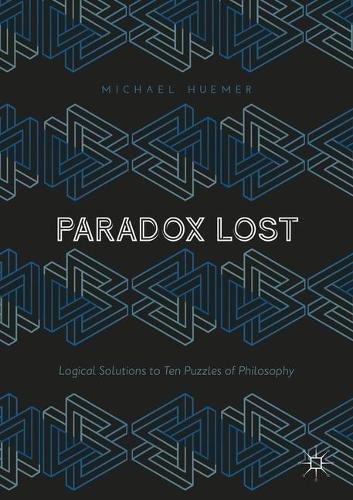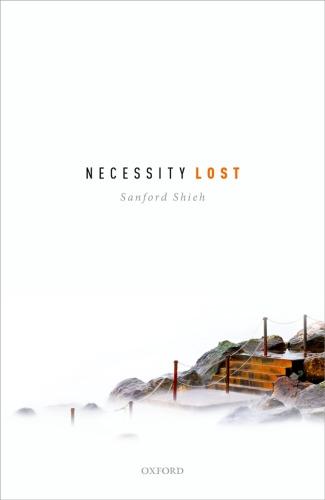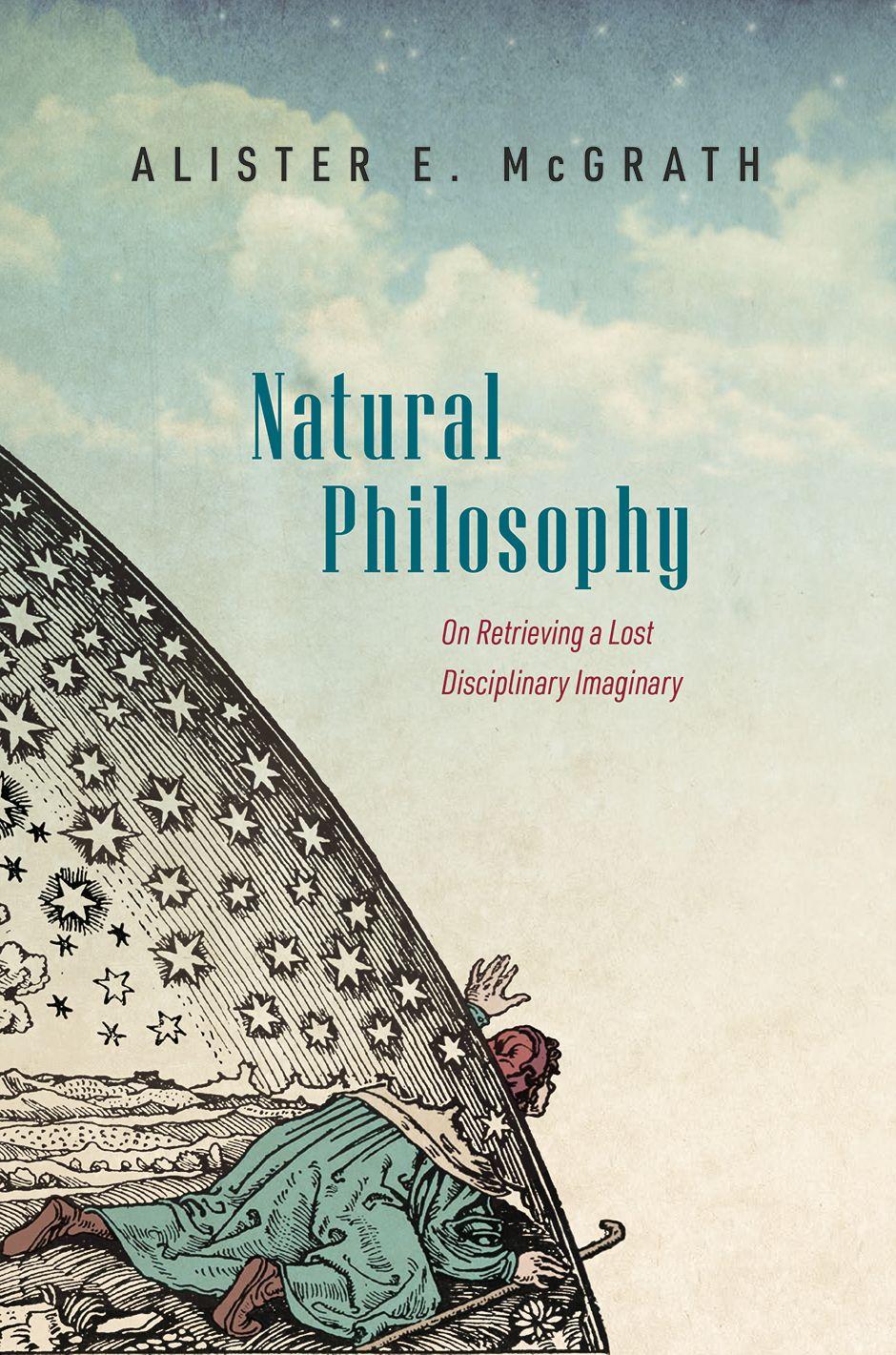Introduction
On Retrieving Natural Philosophy
This book explores a concept which once stood at the forefront of progressive thought, reaching back to ancient Greece and arguably reaching its zenith in the best-known scientific writing of Isaac Newton, Philosophiae Naturalis Principia Mathematica (‘The Mathematical Principles of Natural Philosophy’, 1687), published in Latin to ensure it was read throughout the European ‘Republic of Letters’.1 This is widely seen as a milestone in what some still call ‘The Scientific Revolution’,2 although this is better described as the gradual ‘emergence of a scientific culture’.3 This work established Newton’s reputation as the leading natural philosopher of his day, demonstrating both the fundamental unity of celestial and terrestrial mechanics, and the capacity of the human mind to discern and represent this unity.
Many would now think of Newton as a scientist, often overlooking the recent origins of this term;4 yet for Newton and his age, he was a natural philosopher, a leading representative of both a category of reflection and an understanding of philosophy which is both scientific, as we now understand this idea, and yet at the same time more than scientific.5 For its leading representatives, such as Kepler and Boyle, natural philosophy was a conceptual
1 For Newton’s European following and impact, see Boran and Feingold, eds., Reading Newton in Early Modern Europe
2 Although this phrase was widely and approvingly used by intellectual historians in the late twentieth century, it is now widely accepted that we cannot speak of the seventeenth century as having developed or adopted a unitary set of approaches to the natural world directly analogous to what twenty-first century scholars would recognize as ‘natural science’. For the problems with the older position, see Osler, ‘The Canonical Imperative’; Harrison, ‘Was there a Scientific Revolution?’
3 For the reasons for this, see Gaukroger, The Emergence of a Scientific Culture, 1–8. For further reflections on the inadequacies of thinking in terms of a single ‘scientific revolution’, see Cohen, How Modern Science Came into the World, xv–xxxiii.
4 The term ‘scientist’ began to be used in the 1830s, and achieved wide acceptance during the later nineteenth century: Ross, ‘Scientist: The Story of a Word’.
5 Note Justin Smith’s lament for the loss of intimacy between science and philosophy, which he associates with early modern natural philosophy: Smith, The Philosopher, 25: ‘One of the most significant developments in philosophy since the eighteenth century is that it has gradually lost its institutional connection with science, and so also its self-understanding as not just being interested in science or “pro-science,” but as including science.’
space, a disciplinary imaginary that brought together a way of ‘beholding’ or understanding the natural world, a method for exploring it, and an ethos or way of existing within it.6
Today, natural philosophy is seen as an historical anomaly, a way of envisaging and inhabiting our world which has faded into oblivion through the institutionalization of individual scientific disciplines.7 Ann Blair notes that historians of science often use this phrase ‘as an umbrella term to designate the study of nature before it could easily be identified with what we call “science” today’.8 Yet she also makes the important point that early modern natural philosophy is to be seen as an ‘actor’s category’, demanding that it be understood from the perspective of those who originally used this term.9 What, we must ask, did they understand by this term, and how does it relate to what is today described as ‘natural science’?
Simply stated, this book is concerned with exploring this lost conceptual space of ‘natural philosophy’,10 leading into reflection on the wider contemporary significance of this disciplinary imaginary and the possibility of its partial retrieval. The origins of this book lie in a series of eighteen public lectures I gave in the City of London during the years 2015–18, while I served as Professor of Divinity at Gresham College, London, a position established in 1597. Since Gresham College played a significant role in the emergence of English natural philosophy in the seventeenth century, it seemed appropriate to explore a range of issues relating to theology and the philosophy of science which were integral to this imaginatively and intellectually spacious vision of the natural world. This book represents a substantial reworking and conceptual expansion of those lectures, allowing me to explore the history of natural philosophy, reflect on how it might be reframed in our own time, and consider the benefits it offers.
So why might this conceptual space, which brings together learning about nature and learning from nature, retain imaginative appeal and reflective coherence today? What difficulties does it face? Is such a retrieval of this disciplinary imaginary, no matter how critical, a futile exercise in metaphysical
6 As we shall see, these took the form of personal syntheses of ‘conceptual spaces’, weaving together differing empirical and experimental methodologies, epistemological and metaphysical assumptions, and theological assumptions about the relation of God and the natural order.
7 Lüthy, ‘What to Do with Seventeenth-Century Natural Philosophy?’, 166–7.
8 Blair, ‘Natural Philosophy’, 365.
9 Collins, ‘Actors’ and Analysts’ Categories in the Social Analysis of Science’.
10 I have used the term ‘conceptual space’, as it enfolds many of the issues I hope to address in this work. Other terms are used in the literature to refer to what today constitute cross-disciplinary undertakings, such as ‘interdisciplines’ (Graff, Undisciplining Knowledge, 11–15) and ‘interdisciplinarities’ (Klein, Crossing Boundaries).
manipulation, or might it offer an empirical lens that transmutes our understanding of the world and ourselves? Like Charles Taylor’s ‘exercises in historical retrieval’,11 this work will use historical analysis as a means of understanding the intellectual and social role of natural philosophy in the past, with a view to exploring whether its intellectual vision might enrich present discussions of human interaction and engagement with the natural world. Inevitably, this historical conversation will be incomplete, in that there is simply not enough space to do justice to all the historical, gendered, and geographical voices, episodes, and concerns that might be expected to find their way into a full account of the history of natural philosophy.12 What I offer is more limited—a critical reading of this narrative, which attempts to identify core themes and fundamental approaches that might find their way into a retrieved version of this way of engaging the natural world, laying the foundation for a recovery of such an approach in the present.
Natural Philosophy: A Lost Conceptual Space
Natural philosophy emerged as a significant intellectual domain in western Europe in the late modern period, before the fragmentation of disciplines led to the emergence of distinct communities of discourse, each with its own vocabularies and methods of investigation.13 It was seen to designate a coherent intellectual and cultural domain, which wove together what would now be considered to be quite distinct disciplines—such as the natural sciences, mathematics, music, philosophy, theology, and the cultivation of personal and social virtues. It was a way of life, not merely an intellectual endeavour. Though natural philosophy would now be thought of as an ‘interdisciplinary’ field, this anachronistic judgement would make little sense in the early
11 I borrow this phrase from Dyck, ‘Sovereign Selves’, 138.
12 The most comprehensive survey to date is that of Stephen Gaukroger, whose four-volume history of the notion from 1210–1935 takes up some 2,000 pages. This account is supplemented by his detailed account of important episodes and figures in this history, such as Bacon and Descartes, and his recent reflection on the problems facing philosophy as a discipline. See Gaukroger, The Emergence of a Scientific Culture; Gaukroger, The Collapse of Mechanism and the Rise of Sensibility; Gaukroger, The Natural and the Human; Gaukroger, Civilization and the Culture of Science. On Descartes and Bacon, see Gaukroger, Descartes’ System of Natural Philosophy; Gaukroger, Francis Bacon and the Transformation of EarlyModern Philosophy. On the relevance of the history of natural philosophy, see Gaukroger, The Failures of Philosophy
13 For a good account of this development, see Becher and Trowler, Academic Tribes and Territories, 14–19, 41–50.
modern period, which had yet to develop the disciplinary structures that are now regarded as normative in academic life.14
The development of specific intellectual disciplines, which arguably dates from the nineteenth century, has brought significant benefits—most notably, a focused set of research tasks, a manageable professional literature, the creation of specific communities of discourse, and the articulation of clear research methods, and intellectual norms. Yet this narrowing of intellectual focus inevitably means the fragmentation of what was formerly seen as a coherent intellectual territory into a group of regions, each with its own emerging professional languages, research methods, and epistemic norms, with no sense of being part of a greater whole.15 Where earlier writers had affirmed the importance of the fundamental unity of nature, while acknowledging its ‘great, and finely ordered, multiplicity’,16 disciplinary and professional specialization in the modern period has led to focus shifting towards each of the multiple aspects of nature, with a consequent loss of focus on its unity. It is helpful to distinguish between different fields or domains of human knowledge; this does not, however, entail their isolation, or prevent dialogue between them.
Leading natural philosophers of the early modern period wove together insights deriving from multiple sources to create their own distinct individual visions of this conceptual space, while seeing each of these as part of a greater whole which could be apprehended, if only in part. It was in pursuing this vision that the philosopher could achieve intellectual satisfaction, personal happiness, and learn to cultivate virtue.17 So can this lost vision be retrieved and recast in terms of contemporary disciplinary structures, given the radical changes in terms of how we think about the natural world and the manners of its investigation in the intervening centuries? Where some interdisciplinary projects aim to ‘fill any unoccupied [intellectual] spaces’,18 my proposal is to retrieve or recreate a larger conceptual and imaginative space, enabling deeper and richer conversations about the natural world.
14 Hösle, ‘How Did the Western Culture Subdivide Its Various Forms of Knowledge and Justify Them?’; Krohn, ‘Interdisciplinary Cases and Disciplinary Knowledge’; McGrath, Territories of Human Reason, 19–89.
15 For the issues that this raises, see Graff, Undisciplining Knowledge. Jacobs’s critical assessment of ‘disciplinary silos’ is particularly relevant here: Jacobs, In Defense of Disciplines, 13–26.
16 Lewis, The Discarded Image, 11. Although Lewis here describes what he observed in medieval writings, this concern for a theoretical unity underlying an empirical multiplicity can be seen in early modern natural philosophy.
17 Compare this with the early Wittgenstein: ‘In order to live happily I must be in agreement with the world. And that is what “being happy” means.’ Wittgenstein, Notebooks, 1914–1916, 75.
18 Frank, ‘Interdisciplinarity’, 141.
In undertaking this task, I have not used the ‘building blocks approach’ that some scholars recommend for dealing with complex cultural phenomena or conceptual spaces, such as religion.19 Rather than trying to identify the individual components of a ‘natural philosophy’, and attempting to reassemble these, I intend to consider natural philosophy as an historical actuality, trying to understand how this was understood and enacted, and the benefits this was understood to bring. Yet before developing this point, a serious objection to this enterprise needs to be considered.
Retrieval: An Objection Considered
The objection is this: why bother resurrecting an obsolete form of thought, in the light of an inexorable scientific progress which discredits and renders unnecessary any engagement with the past?20 Natural philosophy, it might be objected, has now been displaced as an outmoded form of discourse on the natural world by the natural sciences. Attempting its retrieval amounts to a pointless exercise in intellectual nostalgia, an unrealistic and possibly illegitimate attempt to recapture a vision of reality which was specific to its age, and has now, like the notions of ‘caloric’ and ‘phlogiston’, been discredited. I concede immediately that the modern natural sciences have refined and developed certain aspects of natural philosophy—such as the close observation of nature (present from ancient times) and the use of the experimental method (which became of increasing importance in early modern natural philosophy).21 Yet it has also marginalized and suppressed certain concerns that were integral to early modern natural philosophy—such as behaving properly towards and within the natural order, and cultivating habits of attentiveness towards its beauty.
As has often been pointed out, the concept of ‘science’ has changed over time, and is too often defined polemically in response to perceived threats rather than constructively in terms of its specific working methods.22 Philosophy, science, and religion—to mention three significant areas of
19 See, for example, Taves, Religious Experience Reconsidered, 161–5. A similar strategy lies behind the ‘fractionation’ of complex phenomena into their components: Whitehouse, ‘Cognitive Evolution and Religion’.
20 Some would see this as belonging to what Todd Moody termed a ‘necrology’ of failed arguments and positions: Moody, ‘Progress in Philosophy’, 45.
21 Gaukroger, The Collapse of Mechanism and the Rise of Sensibility, 150–225.
22 Pigliucci, ‘The Demarcation Problem’. For the factors leading to emergence of such a ‘rhetoric of demarcation’, see Taylor, Defining Science, 101–74.
cultural and intellectual engagement—have clearly undergone change over time,23 making it problematic to essentialize any of them. Yet some studies of scientific advance are essentially ahistorical, offering little more than a selective account of the history of science which fails to take its historical location seriously. A good example lies in modern misreadings of German Naturphilosophie, which is regularly dismissed as a biological embarrassment.24 Happily, more recent scholarship has shown how Schelling’s articulation of Naturphilosophie set out a broad scientific research agenda which had a significant impact on early nineteenth-century German chemistry, physics, and physiology.25
Yet perhaps the best example of this flawed approach is found in Steven Weinberg’s anachronistic ‘Whiggish’ account of the history of science, which presents premodern attempts to do science as a series of fumblings and blunders, eventually remedied by the genius of Newton.26 Weinberg’s method is to judge both philosophers and natural philosophers of the past by the standards of modern physics, as if the term ‘science’ had a permanent, essential meaning throughout history. This account of the history of science is that of a modern scientist,27 someone who has succumbed to the definitional hegemony of the present, believing that it is obvious what science ought to be, and has no hesitation in judging the past somewhat severely for failing to anticipate the present.28
For Weinberg, science is primarily about a quest for order within nature, and has little, if anything, to say to those wishing to think about goodness, justice, or love. Science, Weinberg remarks, has had to ‘outgrow’ such pursuits and beliefs.29 Yet this represents a professional narrowing of focus, which now requires reflective scientists to look beyond their own disciplines for their
23 There is a large literature exploring (and explaining) the historical fluidity of the terms ‘science’, ‘philosophy’, and ‘religion’. Useful entry points are Brown, ‘On Why Philosophers Redefine Their Subject’; Harrison, ‘The Pragmatics of Defining Religion in a Multi-Cultural World’; Harrison, The Territories of Science and Religion; Gaukroger, The Failures of Philosophy
24 For example, see Mayr, The Growth of Biological Thought, 132.
25 On the science, see especially Zammito, The Gestation of German Biology; Gambarotto, Vital Forces, Teleology and Organization. On Schelling’s Naturphilosophie, see Whistler, Schelling’s Theory of Symbolic Language
26 Weinberg, To Explain the World, 215–54. For a critical assessment of Weinberg’s reductionist agenda, see Wójcicki, ‘Physics, Theoretical Knowledge and Weinberg’s Grand Reductionism’.
27 Weinberg notes that his assessment of certain issues and discussions reflect ‘the perspective of a contemporary working scientist’: Weinberg, To Explain the World, 146.
28 Happily, there are some occasions when Weinberg makes some fair points—for example, his criticism of Aristotle’s ‘elaborate reasoning based on assumed first principles’ which turn out to be based on ‘only the most casual observation of nature, with no effort to test them’ (Weinberg, To Explain the World, 27).
29 Weinberg, To Explain the World, 45.
ideas about goodness, justice, and beauty. Weinberg’s critical remarks raise an important question: is there a more capacious way of thinking which can enfold the natural sciences, while at the same time encouraging (and perhaps enabling?) scientists to develop a wider vision of reality than those resulting from the natural sciences on their own? Why should the empirical study of nature be separated from reflection about beauty, love, justice, or goodness? Early modern natural philosophy regarded these and other questions as integral to a proper human engagement with the natural world. Surely these concerns need to be acknowledged and engaged, especially in an age which is increasingly aware of the human capacity to degrade and destabilize the natural order?
Certainly, there have been gains in our understanding of many aspects of our world. But might we have lost something important along the way? Reading Weinberg’s account of relentless scientific progress calls to mind Charles Taylor’s remark about our fallible attempts to make sense of our world: we begin to realize that, despite progress in some areas, we have a sense that ‘we are missing something, cut off from something, that we are living behind a screen.’30 Roger Scruton pointed out that the realization that ‘good things are more easily destroyed than created’31 leads many to both want to hold on to wisdom that seems to be endangered, and to try to retrieve what should never have been allowed to be forgotten or suppressed in the first place.
Nicholas Maxwell has made a powerful plea for the reconnection of science and philosophy through a revitalized ‘natural philosophy’, rightly pointing out their close mutual relationship in the early modern period, and the intellectual benefits that would result from a recalibration of their working relationship.32 In particular, Maxwell highlights the need to solve two problems, now seen as distinct and divergent, yet which were once seen as interconnected aspects of a ‘natural philosophy’—namely, learning about the universe on the one hand, and how to create a good and wise world on the other.33
While I here develop an approach and an agenda that diverge from that set out by Maxwell, we share a common concern to address some mistakes that have led to an impoverishment of our engagement with the natural world, which we both believe can be done through the retrieval of a ‘natural philosophy’.
30 Taylor, A Secular Age, 302. 31 Scruton, Conservatism, 127.
32 Maxwell, In Praise of Natural Philosophy, 115–217.
33 Maxwell, In Praise of Natural Philosophy, 218.
Against those who now locate an exclusive right to discursive justification across all domains of knowledge in the methods of the natural sciences, I propose a counter-narrative: that exploring early modern approaches to natural philosophy can help in the ongoing process of extending the vision and scope of the philosophical enterprise, and making plausible and productive reconnections across the disciplinary boundaries that subsequently emerged. To explore this point further, we need to consider the nature of progress in philosophy.
Philosophical Progress and the Retrieval of the Past
There is growing interest within the discipline of philosophy in the merits of studying its history, both as an intrinsically interesting academic exercise, but also as a means of stimulating and resourcing philosophical reflection in the present.34 The study of past philosophical enterprises is to be seen as attempting to understand how philosophy was understood and conducted under a specific set of historical conditions, in part to stimulate modern forms of the enterprise. As Karl Marx pointed out, ‘people make their own history, but they do not make it as they please under circumstances of their own choosing, but under circumstances that already exist, given and handed down to them.’35 Marx’s point is that, whether we like it or not, we do philosophy within a ‘given’ limiting historical context, precisely because we are culturally and historically embedded. Our historicity limits our options, while at the same time stimulating and informing our reflections.
Ian Hunter thus remarks that past philosophies, considered as objects of intellectual history, are not ‘serial historical expressions of a universal human desire for knowledge and understanding, but regimes for inducing such a desire in those whom circumstance or chance have selected to cultivate a philosophical persona’.36 Similarly, Stephen Gaukroger has offered an historical narrative of the development of philosophy which documents changes in the way in which philosophy has been understood over time, without using the value-laden terminology of ‘progress’ to describe such changes in its
34 E.g., MacIntyre, ‘The Relationship of Philosophy to Its Past’; Hatfield, ‘The History of Philosophy as Philosophy’; Hunter, ‘The History of Philosophy and the Persona of the Philosopher’; Antognazza, ‘The Benefit to Philosophy of the Study of Its History’.
35 Marx, Der achtzehnte Brumaire des Louis Bonaparte, 1: ‘Die Menschen machen ihre eigene Geschichte, aber sie machen sie nicht aus freien Stücken, nicht unter selbstgewählten, sondern unter unmittelbar vorgefundenen, gegebenen und überlieferten Umständen.’
36 Hunter, ‘The History of Philosophy and the Persona of the Philosopher’, 587.
‘culturally specific modes of engaging with the world’.37 Even analytic philosophy itself has undergone a ‘historical turn’, with some of its leading exponents moving away from its traditional ahistoricism towards an acknowledgement of the importance of the study of its own history.38
The growing recognition of the historical and cultural situatedness of the philosophical persona has been helpful in a number of ways.39 It has heightened awareness of seemingly ‘obvious’ ideas having been shaped, to some extent, by historical and cultural factors. It has also led to a growing appreciation that the ideas of past philosophers should be reconstructed ‘on their own terms’ (that is to say, considering the importance of the historical context within which these ideas developed, if they are to be properly understood).40
In reflecting on where philosophy might go in the future, it is clearly helpful to grasp its different self-understandings over time, not least in that this undermines the view that there is some ‘correct’ definition or ‘authentic’ task for philosophy. This point appears to be recognized by Mary Midgley, whose final book proposed that our philosophies are best seen as interim responses to a particular historically situated concern.
Philosophizing, in fact, is not a matter of solving one fixed set of puzzles. Instead, it involves finding the many particular ways of thinking that will be the most helpful as we try to explore this constantly changing world. Because the world – including human life – does constantly change, philosophical thoughts are never final. Their aim is always to help us through the present difficulty.41
Midgley’s approach suggests that the historical study of how philosophy has engaged its ‘present difficulties’ in the past might help resource those same discussions in the present.42
37 Gaukroger, The Failures of Philosophy, 1–12; quotation at p. 8. Note also Hacker, ‘Philosophy’, 130: ‘If we examine the history of modern philosophy, it appears to be a subject in search of a subject matter.’
38 See two important collections of essays: Reck, ed., The Historical Turn in Analytic Philosophy; Sorell and Rogers, eds., Analytic Philosophy and History of Philosophy
39 The term ‘persona’ is increasingly used to refer to an ‘exemplary identity wrought by intellectual, moral, and even corporeal disciplines, one that represented an office (sometimes a noninstitutionalized one) in specific cultural spaces’: Corneanu, Regimens of the Mind, 7.
40 Hatfield, ‘The History of Philosophy as Philosophy’; Lærke, ‘The Anthropological Analogy and the Constitution of Historical Perspectivism’.
41 Midgley, What Is Philosophy For?, 6.
42 The views of Pierre Hadot should be noted here, especially his argument that the most authentic way of doing philosophy is to be a philosopher and a historian: see Force, ‘The Teeth of Time’.
In a recent analysis, Maria Rosa Antognazza has pointed to another philosophical motivation for studying the history of philosophy—the capacity of the past to challenge present-day orthodoxies, pointing to alternative approaches which might result from the creative appropriation of the wisdom of the past. Studying the history of philosophy thus keeps us alert to the fact that latest is not always best, and that a genuinely new perspective often means embracing and developing an old insight. The upshot is that the study of the history of philosophy has an innovative and subversive potential, and that philosophy has a great deal to gain from a long, broad, and deep conversation with its history.43
At first sight, this might appear to represent a demand for regression, rather than progress, in philosophy. Surely this amounts to a nostalgic immersion in the past, which could easily become a distraction from the challenges and needs of the present? Yet Antognazza’s suggestions can easily be accommodated within recent discussions of the complex and contested theme of ‘progress in philosophy’. Philosophy can be said to ‘progress’ in a number of manners. Some would point to the emergence of new research traditions within philosophy—such as empirical philosophy (drawing on empirical science), or linguistic philosophy (drawing on the analysis of language)—as representing progress. Others, however, would point to the increasing conceptual refinement and precision of more recent discussions of classic themes, including the ‘big questions’ of ‘How do we know about the external world? What are the fundamental principles of morality? Is there a god?’44
Yet despite this increasing precision in some areas, there remains an unease at the apparent lack of progress within philosophy, particularly the striking lack of convergence in philosophy when compared with the hard sciences, such as physics. One problem often cited in explaining the ‘appearance of persistent and intractable disagreement’ among philosophers is the difficulty in finding undeniable premises for philosophical arguments.45
Philosophical progress may involve the interrogation of widely accepted assumptions or narratives used to frame discussions of leading philosophical themes—such as the relation of ‘knowledge’ and ‘belief’. Until about 2000, the
43 Antognazza, ‘The Benefit to Philosophy of the Study of Its History’, 161.
44 Chalmers, ‘Why Isn’t There More Progress in Philosophy?’, 5. See also Brake, ‘Making Philosophical Progress’; Stoljar, Philosophical Progress, 1–19; Frances, ‘Extensive Philosophical Agreement and Progress’.
45 Chalmers, ‘Why Isn’t There More Progress in Philosophy?’, 16–22.
standard account of this development was framed in terms of the notion of ‘knowledge as justified true belief’ having dominated western reflection from Plato to Locke.46 Given this contextualization of the discussion, Edmund Gettier’s short paper of 1963 raised fundamental concerns for this tradition, which he assumed went back to Plato, in arguing that justified true belief was not sufficient for knowledge.47 The scholarly consensus of that period initially endorsed Gettier’s reading of the tradition,48 leading some to suggest that the western tradition of knowledge had been thrown into crisis.49 Others, however, subsequently offered a re-reading of Plato which raised questions about traditional accounts of Plato’s views on the relation of knowledge and belief,50 and hence of Plato’s position within the overall narrative arc of discussion. Gettier’s intervention could therefore be seen as having facilitated ‘progress’ by catalysing a re-evaluation of a traditional account, leading to a more reliable statement of its core themes.
The form of philosophical advance set out in the present work involves a critical and creative retrieval of older ways of thinking, which are correlated with contemporary concerns. As Antognazza points out, the history of philosophy has an ‘innovative and subversive potential’, in that it offers alternative approaches to ‘problems of enduring philosophical relevance’.51 Revisiting the past is an important way of injecting a new critical energy into contemporary discussions. A good example of such a critical retrieval of older ways of conceiving and enacting philosophy, and bringing them to bear on today’s questions, can be seen what Edward Feser has called the ‘Aristotelian revival’.52 Aristotle’s theory of practical reason has been taken up by philosophers such as David Wiggins, John McDowell, and Martha Nussbaum, as well as ethicists such as Alasdair MacIntyre, in that it is seen as making more sense of pervasive features of our ethical lives than some more recent alternatives.53 There are also clear signs of interest in Aristotle’s natural philosophy: for example,
46 For a critical account of this tradition, see Ayers and Antognazza, Knowledge and Belief from Plato to Locke.
47 Gettier, ‘Is Justified True Belief Knowledge?’
48 Such as Fine, ‘Knowledge and Belief in Plato’s Republic 5–7’; Fine, ‘Knowledge and True Belief in the Meno’.
49 Pollock, Contemporary Theories of Knowledge, 180. For a more guarded account of its importance, see Williamson, Knowledge and Its Limits, 4; Enskat, ‘Ist Wissen der Paradoxe epistemische Fall von Wahrheit ohne Wissen?’
50 Gerson, ‘Platonic Knowledge and the Standard Analysis’; Sedley, The Midwife of Platonism; Ayers and Antognazza, Knowledge and Belief from Plato to Locke.
51 Antognazza, ‘The Benefit to Philosophy of the Study of Its History’, 180.
52 Feser, ‘An Aristotelian Revival?’ See also the case studies included in Miller, ed., The Reception of Aristotle’s Ethics
53 For well-known and influential examples of this retrieval of Aristotle, see Nussbaum, The Fragility of Goodness; MacIntyre, After Virtue
many contemporary philosophers continue to find Aristotle’s hylomorphism fruitful for contemporary philosophical discussions (such as the mind–body problem).54
The Method to be Adopted
The present study was originally conceived as a celebration of the four hundredth anniversary of the publication of Johann Kepler’s Harmonices Mundi (‘The Harmonies of the World’, 1619), perhaps one of the most important works of early modern natural philosophy, which embodies many of the core themes of this approach. What I propose is a critical conversation with representative past examples of natural philosophy, such as Kepler’s, attempting to identify their core concerns, the methods they adopted, the manner in which their agendas were shaped by their historical and cultural specificity, and what might be appropriately and profitably reclaimed. This work has been made much easier through the surge of scholarly engagement with the concept of natural philosophy in the last two decades, engaged extensively in this study, which has clarified and corrected earlier studies of the distinct nature and focus of such movements.
The first major section of this work thus takes the form of a selective critical conversation with the tradition, which can be traced back to Aristotle. It represents a reading of the tradition which aims for scholarly accuracy on the one hand, and contemporary application on the other. After opening reflections on the tradition in Aristotle and the Middle Ages, the narrative turns to focus on a group of writers—above all, Kepler, Bacon, Boyle, and Newton— who spearheaded the conceptual development of natural philosophy during the height of its influence in the seventeenth and early eighteenth centuries, leading into reflection on its declining influence, and displacement by alternative approaches. The object here is not so much to establish the fine details of the historical trajectory of the movement, or enter into complex arguments about points of interpretation. While this has been the subject of considerable scholarly interest in recent years, my concern lies elsewhere. It is rather to ask what may be learned from our current understanding of this narrative, and
54 Debate often centres on how much Aristotle’s ideas need modification in the light of contemporary discussions: see the divergent positions of Jaworski, Structure and the Metaphysics of Mind; Marmodoro, ‘Aristotle’s Hylomorphism without Reconditioning’; Rea, ‘Hylomorphism Reconditioned’.
how it can inform the quite different historical and cultural location of today’s discussions.
This leads into the second part of the work, which offers a critical and original assessment of what a contemporary reconstructed natural philosophy might look like, and how it might engage a number of contemporary philosophical concerns and agendas, particularly the need for a recalibration of the relationship of philosophy with the natural sciences. Where the first part is largely analytical, the second is more constructive. It offers a nuanced and historicized reflection on how the intellectual virtues of earlier forms of natural philosophy might be recaptured, if only in part, not by some crude historical transplantation of the notion, but rather through ensuring at least some of those virtues can be recovered and integrated. It is quite possible that older understandings of natural philosophy may prove to lie beyond retrieval; yet perhaps we might be able instead to retrieve something of the persona of a natural philosopher.55 The key difficulty we shall consider in this section is how a correlation of insights about the world that the early modern period took to be natural and intuitive can find a fresh rationale and application in the twenty-first century.
We therefore begin our critical conversation with the past by turning to consider the emergence of a ‘natural philosophy’ in the works of Aristotle.
55 Gaukroger, The Failures of Philosophy, 132–8.
The Origins of Natural Philosophy
Aristotle
Forms of thinking that deserve to be called ‘philosophical’ can be found in ancient Chinese and Indian traditions,1 and include reflection on the natural world, and its significance for human beings.2 The discipline now known as ‘philosophy’, however, is generally agreed to have emerged in Greece during the fourth century bce , with the appearance of new forms of culturally located reasoning with the potential to transcend those specific historical contexts and constraints. While some locate the emergence of Greek philosophy in terms of the triumph of logos over muthos, others protest at the historical and intellectual simplifications attending this suggestion.3 Plato, for example, was certainly critical of older myths, but was perfectly capable of developing his own to advance his philosophical agendas.4
Others point to the importance of transcending local cultural and communal norms, moving away from solidarity towards objectivity through the recognition of something beyond a local frame of reference as the basis for truth. As Richard Rorty summarized Plato’s approach, ‘the way to transcend skepticism is to envisage a common goal of humanity – a goal set by human nature rather than by Greek culture.’5 To reason peri phuseōs (‘according to nature’) was to render oneself intellectually accountable to something beyond the local community and its norms.6
1 See, for example, Lloyd, Ancient Worlds, Modern Reflections; Seaford, The Origins of Philosophy in Ancient Greece and Ancient India
2 For example, note the Ru tradition (Ruism, often still referred to as ‘Confucianism’): Berthrong, ‘Confucian Views of Nature’.
3 For a classic statement of this position, see Nestle, Vom Mythos zum Logos; for corrections of its overstatements, see Morgan, Myth and Philosophy from the Pre-Socratics to Plato; Struck, ‘The Invention of Mythic Truth in Antiquity’; Fowler, ‘Mythos and Logos’.
4 Morgan, Myth and Philosophy from the Pre-Socratics to Plato, 242–89.
5 Rorty, ‘Solidarity or Objectivity?’, 21. Rorty himself rejected the notion of some ‘transcultural rationality’, and affirmed instead the quest for rational solidarity within a community: see Hill, ‘Solidarity, Objectivity, and the Human Form of Life’.
6 For the various meanings of this phrase, particularly the associated form historia peri phuseōs, see Naddaf, Greek Concept of Nature, 11–35.
Our story begins with Aristotle’s scientific observations on the Aegean island of Lesbos, where he acquired an extraordinary knowledge of fishes and their behaviour around the Gulf of Kalloni, which was documented and analysed in his Historia Animalium.7 Aristotle argued that the complex observed patterns of the migratory movements of living creatures could be explained on the basis of a few general principles: the food supply, temperature changes, and issues related to breeding.8
Aristotle’s natural philosophy rests on the assumed capacity of the human mind to discern an existing, rather than imposed, order within the natural world, and the ability of human culture to offer analogies by which this may be explained and understood.9 This process of exploration was catalysed by a sense of wonder, which expands our intellectual and imaginative horizons.
It is through wonder that people now begin and originally began to philosophize; wondering in the first place at obvious perplexities, and then by gradual progression raised questions about greater questions, such as the phenomena of the moon and of the sun, about the stars and about the origin of the universe.10
Aristotle’s fascination with nature created a ‘drive to capture and recapture rhetorically that feeling of wonder (thaumazein) that is the origin and promise of all inquiry’.11
Aristotle was not the first thinker to advocate or undertake an investigation of the natural world. At the time, there already existed an established tradition of inquiry into nature, which is clearly delineated in by Plato in the Timaeus, 12 even if it is imperfectly and incompletely developed (for example, Plato seems surprisingly uninterested in the nonhuman biological world). Aristotle’s agenda is broader, aiming to identify what is seen in the natural order, and how this may be accounted for. Aristotle does not use the term phusis to correspond to ‘nature’, as this term is now widely used, but to rather to designate the ‘nature [of things]’. The term kosmos began to be used from
7 For an excellent account of Aristotle’s period on Lesbos, see Leroi, The Lagoon
8 Historia Animalium 596b 20.
9 For what follows, see especially Falcon, Aristotle and the Science of Nature; Lennox, ‘Bios and Explanatory Unity in Aristotle’s Biology’; Leunissen, Explanation and Teleology in Aristotle’s Science of Nature.
10 Aristotle, Metaphysics, 982 b12–16. See further Miller, In the Throe of Wonder, 11–52.
11 Poulakos and Crick, ‘There Is Beauty Here, Too’, 298.
12 See the analysis in Johansen, Plato’s Natural Philosophy, 69–176.
the sixth century to mean something like a ‘unified world order’,13 loosely corresponding to what is today designated ‘nature’.
Theōria: The Nature of and Benefits of Explanation
As Aristotle conceives it, natural philosophy is an autonomous and selfcontained discipline. In the Meteorology, natural philosophy is understood as a systematic inquiry into the different elements of the natural world, in order to discover the connections between its different parts, thus leading to an understanding of nature, which transcends a mere knowledge of nature.14 This idea is often linked with the notion of theōria—a mental beholding of the natural order. As this notion is important for the retrieval of natural philosophy, we shall consider it in some detail.
There is a growing recognition that a ‘novel and subversive claim’ can be seen as lying at the heart of the intellectual enterprises of both Plato and Aristotle: the belief that the ‘supreme form of wisdom is theōria, the rational “vision” of metaphysical truths’.15 The emergence of theōria as a means of articulating the task of philosophy and the status of its outcomes is an important stagingpost in the narrative of the emergence of natural philosophy. It is important to note that this classical understanding of theōria was somewhat more sophisticated than some modern interpreters suggest—think, for example, of Martin Heidegger’s reduction of this notion to metaphysical optics.16 We begin by noting its cultural location, and then move on to consider its role in Plato, before turning to its implementation in Aristotle’s project of ‘theorizing’ the natural world.
While it is clearly problematic to define, or even describe, the nature of fourthcentury Greek philosophy in terms of a transition from muthos to logos, there are good reasons for suggesting that a core task for the new cultural phenomenon of ‘philosophy’ was to defend the status of its claims to knowledge in the face of its rivals originating from religious or cultically privileged sources. The use of the term theōria had cultural overtones at this time, being linked with facilitating connections between individual Greek
13 Marrow, ‘Κόσμος in John’, 90–3; Slatkin, ‘Measuring Authority, Authoritative Measures’, 28.
14 See especially Falcon, Aristotle and the Science of Nature, 85–122. See also Moravcsik, ‘What Makes Reality Intelligible?’; Winslow, Aristotle and Rational Discovery.
15 Nightingale, Spectacles of Truth in Classical Greek Philosophy, 3.
16 Heidegger interpreted theōria as ‘observation’ (Betrachtung), which aims to fix, limit, or entrap its object. For an extended criticism of this approach, see Foltz, The Noetics of Nature
citystates and the broader Hellenic world through networks linking individuals and cults in different locations. A city—such as Athens—would participate in other Greek festivals and sanctuaries by sending delegates to witness the events in question.17 The idea of theōria as a ‘sacred beholding’ was particularly important in sustaining a shared religious practice across the Greek world—for example, in relation to the pronouncements of oracles.18
In the fourth century, Plato used the term theōria to characterize the role of the philosopher, speaking of a ‘mind habituated to thoughts of grandeur and the contemplation (theōria) of all time and all existence’.19 The bios theōretikos of a philosopher was not based on religious rituals or privileged oracles, but on the wise use of reason to discern and contemplate a grander vision of the world. The transfer of this notion of ‘contemplation’ from the religious or cultic domain to that of philosophy can be seen as intimating its oracular or revelatory status—and hence had a right to be considered as a public philosophy, not simply as a private persuasion or pursuit.20 ‘Plato identifies the philosopher as a new kind of theōros, an intellectual ambassador who makes a journey to a divine realm to see the spectacle of truth and then brings a report of his findings back home.’21
This view of the philosopher is set out in the allegory of the Cave, perhaps the bestknown passage of Plato’s Republic, where the theme of a beholding of a grander reality that needs to be declared and enacted plays a critical role.22 For our purposes, the central narrative of the allegory is a group of people, entrapped within a dark cave, knowing only a world of shadows cast on its walls, who are unaware of a grander world beyond the cave. The philosopher is someone who has escaped from this intellectual bondage, and has seen the sunlit world beyond the cave—and thus, like a theōros, has a responsibility to bear witness to that world to those remaining within the cave, despite being
17 Rutherford, State Pilgrims and Sacred Observers in Ancient Greece; Nightingale, Spectacles of Truth in Classical Greek Philosophy, 40–71.
18 Rutherford, State Pilgrims and Sacred Observers in Ancient Greece, 93–109. For an important earlier account of the philosophical significance of this cultural practice, see Rausch, Theoria.
19 Plato, The Republic, 6; 486a. For comment, see Nightingale, Spectacles of Truth in Classical Greek Philosophy, 72–93. There are hints of this idea in the preSocratic tradition: Bénatouïl and Bonazzis, ‘Θεωρια and Βιοσ Θεωρητικοσ from the Presocratics to the End of Antiquity’, 3–4. Nightingale notes that two of Plato’s metaphysical dialogues (the Phaedo and the Republic) open with scenes involving civic theōria: Nightingale, Spectacles of Truth in Classical Greek Philosophy, 74, n.8.
20 Bénatouïl and Bonazzis, ‘Θεωρια and Βιοσ Θεωρητικοσ from the Presocratics to the End of Antiquity’, 5–7. However, some considered that such philosophical contemplation led to some form of privatized existence: see the critical evaluation of this trend in Brown, ‘Contemplative Withdrawal in the Hellenistic Age’.
21 Nightingale, Spectacles of Truth in Classical Greek Philosophy, 82.
22 Republic, VII 514a2–517a7. For the problems of interpreting this analogy, see Karasmanis, ‘Plato’s Republic: The Line and the Cave’; Johansen, ‘Timaeus in the Cave’.
overwhelmed by the enormity of this acquired vision of reality, and its obvious dissonance with the known and familiar world of the cave. For Plato, the philosopher is not primarily someone who has acquired a body of insight through teaching; rather, the philosopher has caught a vision of reality, or experienced a transformative beholding of the world.
Yet Plato has surprisingly little interest in the specifics of this world beyond the cave. The philosopher beholds this world, noting its ‘plants and animals and the light of the Sun’;23 yet Plato’s concern does not lie in reflecting on the natural world, but rather grasping and inhabiting the grander theōria that the escape from the cave makes possible. This becomes particularly clear in a brief discussion about looking at the stars. Glaucon believes this involves looking upwards; Socrates retorts that it means looking downwards, arguing that we should ‘behold (theōrein) with the mind, not with the eyes’.24 While Plato’s account of theōria deserves further elaboration,25 for our purposes there are two points that merit close attention. First, philosophy entails a new way of beholding reality, including the world of nature; and second, Plato does not appear to see this theōria as entailing or even encouraging a closer engagement with the world of nature. Aristotle concurs on the importance of theōria, but is willing to engage the natural world from its perspective, and to recognize the role of nature in developing theoretical perspectives. The process of engaging with the natural world, which is integral to Aristotle’s natural philosophy, particularly in dealing with questions such as the observation of change (kinēsis) or apparent goaldirected behaviour within nature, involves abstraction from the realm of nature to a realm of essences, which are clearly understood to be part of the natural world rather than belonging to some separate domain.
But what is the point of gaining such an understanding? What intellectual, moral, or practical benefits does it bring? How does it contribute to the pursuit of happiness or wellbeing (eudaimonia), which Aristotle commends as a human ideal? This is an important question, given the persistent anxiety within Aristotle scholarship that the pursuit of such theoretical knowledge might turn out to be pointless, or at least to be incompatible with Aristotle’s statements concerning a good life.26 Unlike some later theoreticians, Aristotle does not hold that theōria holds the key to mastering the natural world,
23 Republic, VII 532b. 24 Republic, VII 529b.
25 See, for example, Nightingale, Spectacles of Truth in Classical Greek Philosophy, 94–138.
26 For some important reflections, see Nightingale, Spectacles of Truth in Classical Greek Philosophy, 187–251; Engelmann, ‘Scientific Demonstration in Aristotle, “Theoria”, and Reductionism’; Roochnik, ‘What Is Theoria?’
